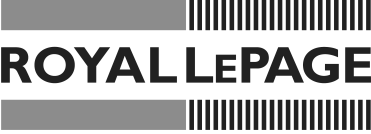Condo Fees & Reserve Funds: 3 Common Misconceptions
When purchasing a condo in Quebec, it’s important to keep condo fees in mind as you take a look at your budget and discuss buying options with your broker.
Condo fees, also known as co-ownership fees, are billed to co-owners of a building on a monthly basis. They cover necessary expenses for the regular maintenance of common areas of the building as well as any major renovations that may need to be completed. This requires that the condo corporation establishes a reserve fund in which a portion of the condo fees are deposited.
Myth #1 – Condo fees; the lower the better.
Even though the condo fees for a particular building may be relatively low, be wary of developers using this as a strategy to reel in buyers to then significantly increase the fees down the road. This could also indicate that consistent maintenance and major renovations are being neglected. If this is happening, the building loses value and ultimately puts the co-owners at a disadvantage.
Myth #2 – If a reserve fund is low, it is poorly managed.
Also known as contingency funds in Quebec, the reserve fund is built up using a portion of the owners’ monthly condo fees. It exists in the event of a major renovation or repair as a nest egg to cover large costs.
Before buying a condo, you will be able to look at the reserve funds. If there is little money in the fund, find out if there has been any major work done recently. If the fund is healthy, there will likely be large expenses on the horizon. A well managed condo corporation should be able to provide you with all of the information on past and future building work. From there you will be able to take a look at the big picture and assess the true status of the fund.
Myth #3 – My insurance is covered by my condo fees
Unfortunately this is false. The insurance included in your condo fees covers the part of the building that you don’t directly own – you will still need to buy insurance for all of your things. Don’t forget to insure the sinks, toilet, appliances and all the upgrades you’ve made to your unit. You own all of that stuff too!
As always, important factors in your condo buying process should be discussed with your broker who will be able to serve as a guide while condo fees and reserve funds are assessed.
If you are interested in buying or selling a condo in Montreal or have questions about the market or anything mentioned above, it would be my pleasure to assist you.
Back to News
Blog Search
Topics
- Achat (108)
- Buying (127)
- For Rent (10)
- Fundraiser (2)
- Giveaways (6)
- Holidays (11)
- Home Maintenance (29)
- loué (6)
- Marché (47)
- Market (83)
- Mortgage (4)
- New Listing (8)
- Non classifié(e) (33)
- Renovations (3)
- Selling (27)
- Uncategorized (32)
- Vente (20)


